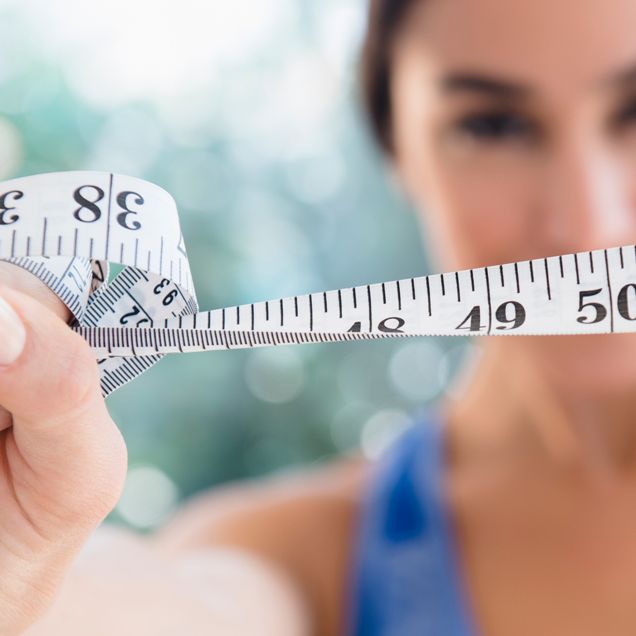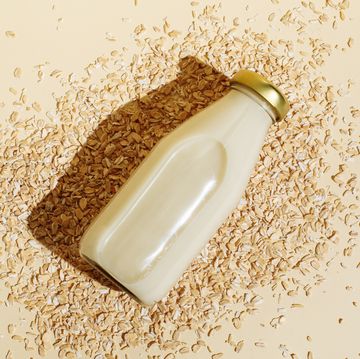Whether you love it or hate it, you likely have an emotional relationship with your bathroom scale. Seeing a drop after weeks of work at the gym can put you on cloud nine—and noticing the numbers creeping upward can bring you crashing right back down to earth, fast. Plus, constant weigh-ins can be a source of stress and anxiety, particularly if you struggle with body-image issues or disordered eating.
Given this emotional rollercoaster, is the scale even the best measure of weight-loss progress, anyway?
"I think the scale can be a really tricky thing for people, especially young women or middle-aged women, because we tend to get very focused on the number," cautions Alicia Romano, R.D., who specializes in weight management at Tufts Medical Center's Frances Stern Nutrition Center in Boston.
Related: 5 Morning Habits That Are Making You Gain Weight
When you weigh in, the number staring back at you does give you a general sense of your progress over time—so in that sense, Romano says, stepping on the scale weekly or monthly can be good for accountability. But relying on the scale alone can cause you to lose sight of other ways your body is changing. "Sometimes you might be making progress, but it might not be showing on the scale," Romano notes. "Healthy weight loss can be slow and steady." (Speed up your progress towards your weight-loss goals with Women's Health's Look Better Naked DVD.)
Plus, Romano adds, tons of factors can skew your weight on any given day. Your hydration levels, sodium intake, digestive system, clothing, and even weigh-in time can all affect the number you see when you step on the scale, as can the way the machine itself is calibrated. Starting or intensifying a fitness regimen may also account for some sneaky weight gain—though maybe not for the reason you think.
"Anytime we start a new exercise program our body goes through changes due to the new stress we put on the body and its muscle fibers," Romano explains. "We may develop some inflammation and micro tears in the muscle, which can cause some temporary water weight gain."
Check out some of the weirdest weight-loss trends through history:
Though there's also some room for error when it comes to the measuring tape—you may get different results if you don't measure from the exact same spot each time, for example—Romano says it generally provides a more holistic and unbiased picture of weight-loss progress than the scale. "Measurements are a great way to see other forms of progress that might not be seen on the scale," such as losing inches or toning up, she says.
Related: This Is How You Should Lose Weight, According to Your Body Type
Lauren Tefft, a Tier X trainer at Equinox in Boston, also prefers her clients step away from the scale and look to the tape instead.
“For general clients that are just trying to improve their fitness level or maybe look better in their clothes or feel a little more self-confident about the way they look, I think the measuring tape’s a great way to help a person track their progress,” Tefft says. To get the most accurate assessment of your overall gains and losses, she recommends measuring four or five areas on your body—your arms, thighs, waist, and hips, perhaps—every two weeks or so.
Related: 'The Advice My Trainer Gave Me That Helped Me Lose 80 Pounds In One Year’
With all that said, both Tefft and Romano stress that making healthy, sustainable lifestyle changes is more important than the number you see on either the scale or the measuring tape. "Setting very specific lifestyle-related goals and working toward achieving those goals can be really powerful," Romano says. "I also encourage clients to monitor other health and wellness related factors: their energy levels; their sleep pattern; the way their skin, hair, and nails may change; the regularity of their bowel movements; things that indicate better health and better nutrition."
After all, weight is but a number.













